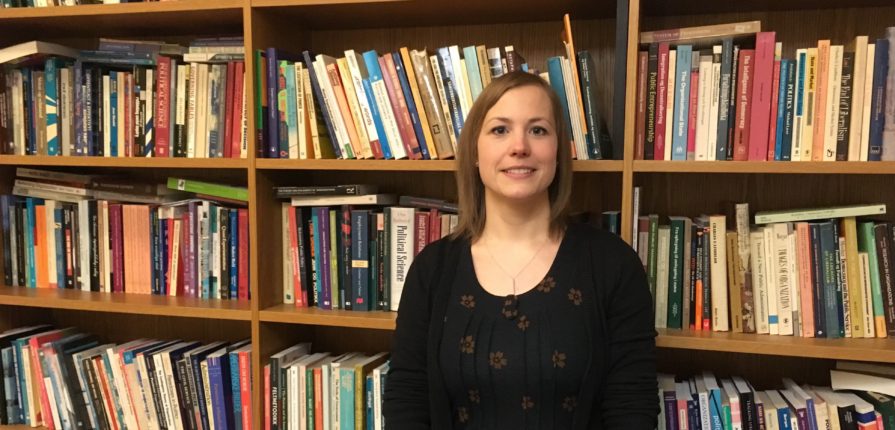NEW RESEARCHER: Dr. Jenny Krutzinna.
Jenny Krutzinna started as a researcher at the Centre for Discretion and Paternalism on April 3rd. And even though she finds Bergen very beautiful, it is the academic opportunities that convinced her to leave her position at the University of Oxford and move to Norway.
– The research conducted here at the Centre is so important. Because if we can contribute to only a small improvement in children’s situation, it will make a big difference.
– I believe that the way the Centre works, by bringing together researchers from different disciplines and countries to work together and contribute to each other’s understanding, will be very fruitful.
Need for critical research
Jenny claims that something is wrong with how child protection in European countries works. She argues that this is a field in need of critical and independent research.
– There are examples of lack of intervention before it was too late, but also state interventions that should not have happened. This is the problem with discretion: It gives room for bad decisions and even abuse.
– And then you also have the problem that it is difficult for the general public to get information on how the system works, and to access documents and judgements.
This is why Jenny feels that researchers have an important mission.
– We can provide knowledge to decision-makers and professionals inside the system, as well as raising awareness among citizens and empower them to participate in discussions on how the system works and how it should work.
Child’s best interests
As a researcher at the Centre, Jenny will participate in the Acceptability-project. This research project examines public values and interpretations of the child’s best interests principle within different societies, as well as legal justifications of best interest judgments.
This seems like a good mach. Jenny is educated in Law and Ethics, and her main research interest is well-being as a justification in ethical and legal argumentation processes concerning children.
– I have always been intrigued by questions such as ‘how should the law be?’. However, I often find philosophy to be too focused on what would be right in an ideal world, while I am more concerned with what works in practice.
– This is why I look forward to examine the idea of children’s best interests, and to study how this concept is used as justification in many different ways and in very different contexts.
Don’t care about fame
Jenny is fluent in English, German and Spanish, as well as skilled in French and Norwegian. This makes her a valuable resource in the cross-country analysis conducted at the Centre.
She has also participated in an online course in social science methodology, to be better prepared for participating in the interdisciplinary research.
– My ambition is to contribute to academic work that will improve child welfare in Europe. I don’t care about becoming a famous researcher, but I want to do good research and have an impact.
Profile: Jenny Krutzinna
|

